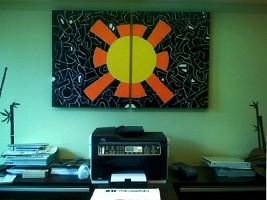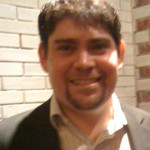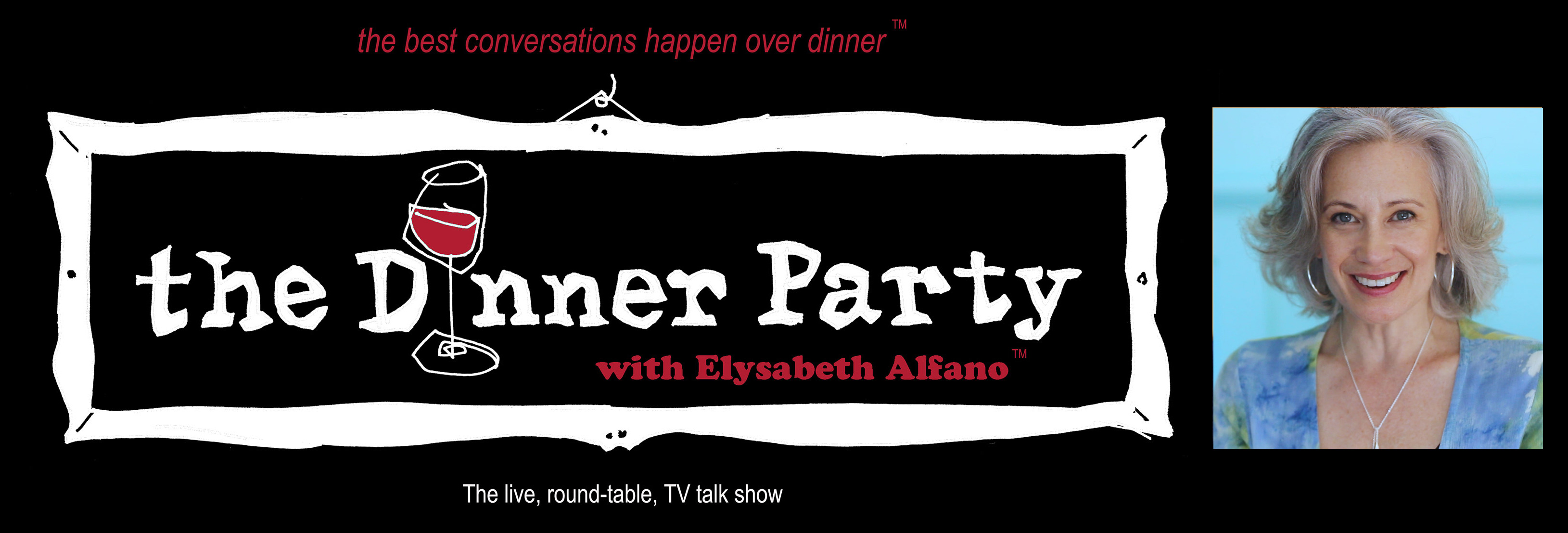Some Thoughts on What Makes an Innovator by Joshua Ginsberg
September 15th, 2010An associate of mine asked me an interesting question – what led me to become an innovator? I was pretty flattered by this, since I’m not sure I’ve really earned the right to that title and if I have, it almost certainly has more to do with luck than with special powers or knowledge on my part – luck to have had some very broad and unusual experiences coupled with just enough knowledge and experience to have put that experience together in a new shape. Regardless of the validity of any such claim, it got me thinking.
 For those who are familiar with my work experience, they know that I started out as a contractor for Microsoft in 1998 and then left a year later as one of the early account executives in the HotJobs.com sales office in Chicago. Since I think we seem to have a strong natural link in our minds between technology and innovation, people might assume that it was this technology background that made me an innovator. It certainly helped refine my thinking and showed me what a successful, innovative businesses can look like, but I don’t think it was a primary factor. Further, I think it can actually be detrimental to lump technology and innovation together the way we do – innovation doesn’t have to be a new green fuel technology or a new mobile application. A change to a law that’s been on the books for centuries could be a legitimate, radical innovation, or a change to a tax code or a zoning rule… It doesn’t have to be sexy. Technology is by nature innovative, but innovation is not necessarily restricted to technology; rather it’s a bigger concept which I’ll just call, “seeing the world differently.”
For those who are familiar with my work experience, they know that I started out as a contractor for Microsoft in 1998 and then left a year later as one of the early account executives in the HotJobs.com sales office in Chicago. Since I think we seem to have a strong natural link in our minds between technology and innovation, people might assume that it was this technology background that made me an innovator. It certainly helped refine my thinking and showed me what a successful, innovative businesses can look like, but I don’t think it was a primary factor. Further, I think it can actually be detrimental to lump technology and innovation together the way we do – innovation doesn’t have to be a new green fuel technology or a new mobile application. A change to a law that’s been on the books for centuries could be a legitimate, radical innovation, or a change to a tax code or a zoning rule… It doesn’t have to be sexy. Technology is by nature innovative, but innovation is not necessarily restricted to technology; rather it’s a bigger concept which I’ll just call, “seeing the world differently.”
The next assumption that I want to correct is that my experience after HotJobs, reviewing business plans and potential investment opportunities for Vcapital.com made me an innovator. Clearly, I learned a great deal about entrepreneurship there, in terms of both things to strive for and pitfalls to avoid in starting a business. It was mentors like Larry Hayward (Founder of VentureLab) who introduced me to the idea that “the best innovations tend to be evolutionary rather than revolutionary.” It was an important part of my entrepreneurial education, but I don’t think it’s accurate to say that it made me any more or less innovative. Just better prepared to face entrepreneurship.
My answers to the question, “how did you become an innovator,” or, the variation of the question that I prefer: “what makes you see things differently from the next guy,” seems to surprise a lot of people. So below are just some of the factors that I believe have been and continue to be most significant in changing the way I view the world:
1)My dad was left-handed. (Knowing how to find the problem)
Ok, now that probably sounds absurd, right? I’m not even saying that I’m left-handed, but rather, my father is. So how could that possibly affect my point of view? The simple answer is that I’ve been luckier than I could have any right to hope for in having a father who is not only a good man, but also a close friend and a very good teacher. As far back as I can remember, he would point out very simple everyday things and situations that pose no problem for a right-handed person like me, but that cause considerable difficulty for a southpaw. Things I wouldn’t even have paused to consider, like shifting gears in a car, opening doors, the layout of cutlery on a table, etc… By pointing these out to me, he opened my mind to the idea that there are some very basic, simple things in everyday life that I take for granted which pose real problems for some portion of the population. Things that can be improved upon or made easier; and this to me is the very heart of innovation. It’s not necessarily knowing how to find the solution to a problem so much as it’s knowing how to look at a solution you already have and then finding the right problem to apply it to.
2)I played chess. (Developing flexible strategies)
The relevance of chess to innovation may or may not be more obvious with my dad being left-handed. Chess was one of many geek hobbies as a kid (and mind you, when I was a kid the term “geek” didn’t have any of the positive connotations that it does today). It was also an amazingly powerful way to learn about risk vs. reward, strategic sacrifice and above all creating strategies flexible enough to get me to my goal while knowing that unanticipated challenges would try to derail my plans. I can think of several specific examples but I’ll begin with strategic sacrifice. It’s nice to win a game of chess without losing many of your pieces, but it seldom happens in the games that I’ve played. At some point there almost invariably comes a rapid trade off of a pawn for a knight, a knight for a bishop, a bishop for a rook, etc… where each player is trying to come up with the best strategic position after the tradeoffs. So the question becomes, what do you have to give up in order to achieve your objective – can you win a game with just a queen and a rook? (The answer is yes) What about with just a queen and a pawn? (Still yes – but it’s a hell of a lot harder) And then there is the idea of flexible strategies – you have a pretty straight forward objective, which is to put your opponent’s king in checkmate before he does so to your king. So you come up with a way to move the right pieces into the right position… except that any half decent player will usually see what you are attempting to do, so they throw up roadblocks (you could think of them as objections if you’ve got a sales-focus). You’re not always sure what the challenge will be, but your plan has to have contingencies so that when the unexpected occurs, you have a way around it. And this type of strategic thinking is the other half of knowing how to find the right problem – knowing how to create a flexible strategy for solving it.
3)I was between different worlds (Finding ways to unify internal conflict and contradiction)
It’s probably safe to say that most of us feel like outsiders sometimes – when groups settle into two factions, we’re the one standing halfway in between. It’s probably part of the nature of just being human. It’s often an unpleasant place to be and most of us probably try to avoid it. But sometime we have to learn to live with it. In retrospect, it was the story of my childhood. And adolescence. And young adulthood. My mother was a very talented, frustrated amateur artist. My dad was a doctor who became a successful pharmaceutical entrepreneur. It’s hard for me to think of two people and two sets of inclinations that seem more fundamentally opposite to one another than the two that influenced me the most. So as I grew up, I would seek out an artsy crowd, but eventually find that it didn’t satisfy me. Like a human pendulum, I would swing to the opposite side and time with a more entrepreneurial crowd, only to find that while it fulfilled other parts of me, it still fell short of a perfect fit. I al ways felt like I was too business oriented for the artists and too artsy for the MBAs. This pattern repeated itself after college, when I went from creative jobs (such as writing and advertising) to much more structured business jobs (sales, business development). Each position I held had some elements that were both structured and creative, but I just couldn’t find the right fit. It seemed like I’d never be able to resolve my internal conflict and that I’d never be able to find happiness for any length of time in whatever work I chose. While having a seemingly contradictory skill set seemed to be detrimental in almost every position I encountered, once I finally decided to create my own position, suddenly all of the seemingly disparate skills and experience I had accumulated were no longer barriers. Suddenly that unlikely combination that was my experience was the exact combination that would fit the job I was creating for myself. For the first time, in my mid 30’s, I felt like the conflicting sides of myself were working in unison and towards a common goal. Not buying into the illusion of having to be one way or the other was critical to allowing me to have my big idea and to pursue it. In a great many ways, the whole concept for my business sprang as much from trying to solve a problem in the world as from trying to resolve my internal contradictory interests.
ways felt like I was too business oriented for the artists and too artsy for the MBAs. This pattern repeated itself after college, when I went from creative jobs (such as writing and advertising) to much more structured business jobs (sales, business development). Each position I held had some elements that were both structured and creative, but I just couldn’t find the right fit. It seemed like I’d never be able to resolve my internal conflict and that I’d never be able to find happiness for any length of time in whatever work I chose. While having a seemingly contradictory skill set seemed to be detrimental in almost every position I encountered, once I finally decided to create my own position, suddenly all of the seemingly disparate skills and experience I had accumulated were no longer barriers. Suddenly that unlikely combination that was my experience was the exact combination that would fit the job I was creating for myself. For the first time, in my mid 30’s, I felt like the conflicting sides of myself were working in unison and towards a common goal. Not buying into the illusion of having to be one way or the other was critical to allowing me to have my big idea and to pursue it. In a great many ways, the whole concept for my business sprang as much from trying to solve a problem in the world as from trying to resolve my internal contradictory interests.
As strange as it may seem, I believe that the three factors listed above have shaped my thinking towards both innovation and entrepreneurship. There is an extensive list of additional factors that I could have included, such as having lost some personally important personal battles early on and being, in some ways, perpetually discontent (which is not at all the same as saying “perpetually unhappy” – I think that I’m actually quite happily discontent). But the three factors: having grown up with a lefty, having played chess and having been caught between seemingly conflicting poles, are those that stood out as being most significant – take them away and my perception not only of innovation but of the world at large, would be radically different than it is today. My thinking on issues of entrepreneurship and innovation continues to shift and evolve as Chicago Art Leasing grows and I look forward to continuing to share my thoughts and insights with you as much as hearing your own.
-Joshua Ginsberg
 Joshua Ginsberg is the owner and founder of Chicago Art Leasing LLC – a leading provider of local artwork for sale, providing innovative cost-saving, flexibility and benefits for clients while also creating annuities for artists from their inventory. Ginsberg’s diverse background includes experience in industries including technology, sales, marketing, finance, and clinical research. He has written published articles on a wide range of topics including art and entrepreneurship.
Joshua Ginsberg is the owner and founder of Chicago Art Leasing LLC – a leading provider of local artwork for sale, providing innovative cost-saving, flexibility and benefits for clients while also creating annuities for artists from their inventory. Ginsberg’s diverse background includes experience in industries including technology, sales, marketing, finance, and clinical research. He has written published articles on a wide range of topics including art and entrepreneurship.



